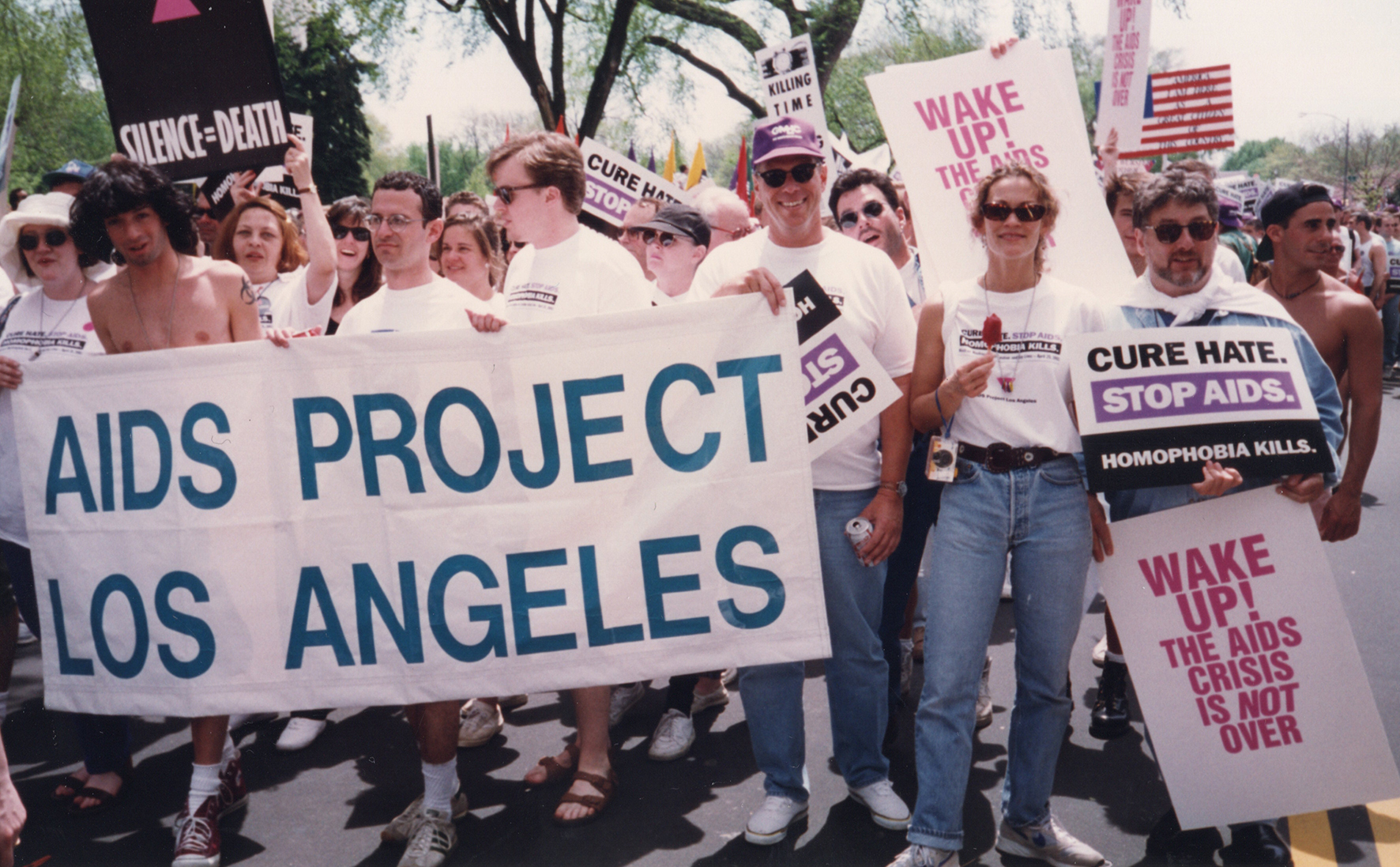
- Film
Docs: “Commitment to Life” During the HIV/AIDS Epidemic
Commitment to Life is a documentary about unwavering bravery in the face of death, as we meet and hear about so many of the extraordinary and courageous people in Los Angeles who stepped forward during the HIV/AIDS pandemic.
Premiering at the Santa Barbara Film Festival on February 11, Commitment to Life is directed by Jeffrey Schwarz (Tab Hunter Confidential, I Am Divine), and documents the true story of how an intrepid group of LA people living with HIV/AIDS – doctors, movie stars, studio moguls and activists – changed the course of the pandemic.
Named after the first high-profile AIDS Project Los Angeles fundraiser hosted by Elizabeth Taylor, Commitment to Life interweaves archival photos and never-before-seen footage with new interviews featuring a wide range of subjects, including Minority AIDS Project co-founder Jewel Thais-Williams; Queer Eye cast member Karamo Brown; HIV/AIDS physician Dr. Michael Gottlieb; writer/comedian Bruce Vilanch; Dreamworks co-founder Jeffrey Katzenberg; former Field Director of AIDS Ministry Rev. Steve Pieters, and HIV/AIDS activist Phill Wilson.
Director/producer/editor Jeffrey Schwartz spoke to us on Zoom about his powerful new documentary.
How did you first get involved in making this film?
I was approached by APLA Health, formerly known as AIDS Project Los Angeles, and they knew my work and wanted to make a film about the Los Angeles side of the story. We’ve seen films about how New York and San Francisco survived a plague but there hasn’t really been a film about Los Angeles, about Hollywood, and so many important things happened here. Each city had their own response to the crisis and their own activists and community, and while L.A. was not necessarily known for its activism, there was a lot going on. What L.A. is known for is telling stories, and that included the support of the biggest movie star of that time, Elizabeth Taylor, and screenwriter Ron Nyswaner, who wrote the first mainstream Oscar-winning Hollywood movie about AIDS, Philadelphia (1993, starring Tom Hanks and Denzel Washington).
How important was Elizabeth Taylor in this movement?
Elizabeth was the biggest star in the world at that time and she was looking for some way to be involved as she had a lot of gay friends, and she was watching them all get sick and die and she wanted to do something about it. She decided to plan the first big fundraiser and she used her stardom to get the press to pay attention when there were very few openly gay celebrities at that time, so she made it safe for so many other celebrities to come forward too.
And you included footage of Elizabeth Taylor and Rock Hudson at the Golden Globes when she received the 1985 Cecil B. DeMille Award?
Yes, she was very close to Rock Hudson and many people think it was his diagnosis that brought her into the fight, but she was already involved before he got sick. When she was honored at the Globes, Rock was her date and it was the first time that people noticed something was going on with Rock, but this was obviously before anybody knew he was sick. We wanted to highlight that moment.
How did it feel to be making this documentary during another pandemic?
We were making this movie at the height of the shutdown in 2020, so there was a lot of anxiety and fear on our part. And we talked about that with our interview subjects, like, “Does this remind you of anything?” Because we had a different President at the beginning of Covid than we do now, and he was trying to minimize what was going on and withholding information. We saw that with the Reagan administration too, as he didn’t actually say the word “AIDS” until 1987, five years after it began. So, this film is inherently political only because we’re seeing why it’s so important who is in charge during a time of crisis.
What remains with you from the experience of making this film?
It’s been very emotional. I’m a gay man who came of age in the ‘90s, the next generation after AIDS, so I came out of this with an incredible gratitude to that generation who lived through this, because we would not be where we are today as an LGBTQIA community if AIDS hadn’t happened. AIDS really forced us to show who we were to the world and also that we demanded respect for our relationships, so that coming together feels like a phoenix that rose out of the ashes.

